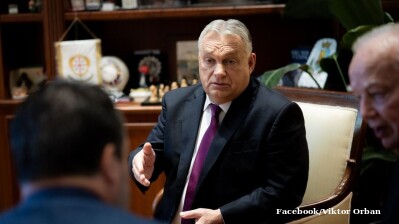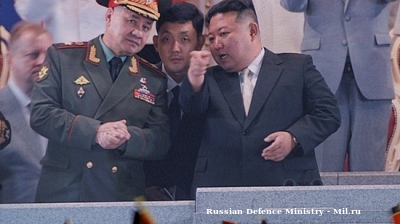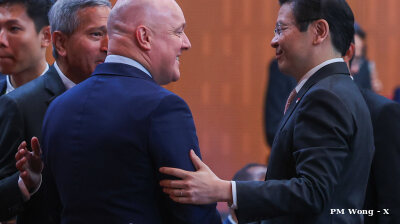Ahead of the end-of-the-year holiday season Russian authorities are in talks with the leading supermarket again on price controls. The Kremlin is particularly worried about the soaring price of mayonnaise.
Kommersant daily reported that the country’s largest mayonnaise producer, Essen Production, had warned that the retailers will hike sales prices as of December 15 by up to 10% on mayo, up to 15% for mayo containing sauces and up to 10% for tomato sauce.
That is a big problem in Russia. They love mayonnaise, which is one of the main ingredients of Olivier salad. This potato, peas and ham salad is to the Russian holiday table what Turkey is to the Thanksgiving lunch.
This season's price hike is the second increase in mayo prices by Essen this year, reportedly attributed to more expensive vegetable oil, its main ingredient. Eggs have also been in short supply and have become more expensive, the other main ingredient of mayonnaise. Analysts surveyed by the daily believe that other producers could follow Essen’s price hike.
Higher food prices ahead of holidays would further intensify inflationary pressures (chart), in addition to the most recent severe weakening in ruble, and the seasonal hike in both state and household spending.
The Central Bank of Russia (CBR) has been struggling to reign in runaway inflation, which peaked in July at 9.1% in July and has only fallen slightly since then. The CBR is scheduled to have a monetary policy board meeting on December 20 and is expected to keep raising the key interest rate currently already set at record-high 21%.
According to a separate report by Izvestia daily, leading dairy producers held a meeting at the Ministry of Agriculture and agreed with the Federal Antimonopoly Service (FAS) and the largest retailers on a noticeable reduction in prices for socially important goods before the New Year holidays.
The Kremlin has resorted to these administrative tools to bring high prices on staples down in the past and retailers and producers have cooperated before, but only for a limited time. Containing price surges before the holidays begin is politically important for the Putin administration that is working hard to shield the population from the worst effects of the war in Ukraine.
Reportedly, the largest dairy producers such as Molvest, EkoNiva, Renna and others, will reduce prices by 10-15% for a narrow range of products: cheap milk with fat content of 2.5%, butter with fat content of 72% and some other positions. At the same time, retailers will limit the markup on these products to 5-10% until the end of freezing at manufacturers.
Notably, while some retailers (the largest players X5, Magnit, Dixy, and French Auchan) accepted the FAS proposal, others such as Metro, Lenta, MariaRa and Monetka rejected it, according to Izvestia.
News

European diplomacy should have stopped war, Orban tells Italian broadcaster
The job of European diplomacy would have been stopping the war in Ukraine, but Brussels has become "irrelevant" by deciding not to negotiate, Prime Minister Viktor Orban told an Italian TV channel on October 28.

Zelenskiy allows the start of controlled arms exports
President Volodymyr Zelenskiy ordered Ukraine’s Ministry of Defence to begin the controlled export of domestically produced weapons starting in November for the first time in the hope of boosting production and attracting investment.

North Korea fires cruise missiles to mark Trump's arrival in the South
State media framed the launch as a reminder of North Korea’s military strength to what it described as its enemies. The launch does not breach United Nations restrictions, since the rules prohibit ballistic missile testing, not cruise missiles.

Singapore PM Lawrence Wong heads to APEC in bid to deepen Seoul ties
The visit will be Wong’s first trip to South Korea since he assumed office in May 2024, and the first by a Singaporean prime minister since 2019 – in part to recognise the 50th anniversary of diplomatic relations between the two nations.



